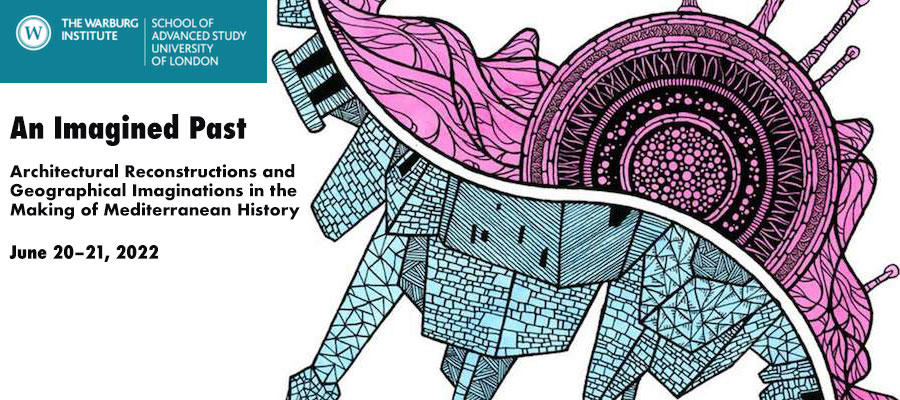An Imagined Past: Architectural Reconstructions and Geographical Imaginations in the Making of Mediterranean History, The Warburg Institute, June 20–21, 2022
This two half-day online conference ‘An imagined past: Architectural reconstructions and geographical imaginations in the making of Mediterranean history’ will be about visual representations and Mediterranean history with a focus on how architectural reconstructions and geographical imaginations have affected our views of the Mediterranean past and present.
We are all aware of how reconstructions affect the creation of the past, and that reconstruction is also always partly imagination. It is only fairly recently that maps and architectural reconstructions became used as scientific evidence, with the expectation that they reflect the ‘actual’ past. The conference wants to take the imaginative part of representations and its impact on the history of the Mediterranean seriously as a starting point: how have architectural reconstructions and cartographic representations affected our image of the past and influenced our conceptions of the Mediterranean? The conference will examine iconic historical reconstructions and maps, ranging from the very first representations in prehistory, antiquity, and post-antiquity up to today, that had an impact - but also wishes to consider those images that may have been forgotten but which have also shaped our images of the past. Some representations, such as for instance the Black or Islamic Mediterranean, have been ignored or purposefully neglected, but are able to significantly contribute to a more diverse image of the Mediterranean past.
We invite scholars and PhD-students working on one of these four interrelated research topics to present a 15/20 min paper, to be followed by a short discussion, on any of the following topics:
- How architectural and cartographic representations were conceived in pre-modern times when they did not yet serve, or served in a very different way, as scientific data
- How architectural reconstructions and maps became part of our modern scientific discourse
- How reconstructions of the past have been affected by contemporary realities
- How the presence of some, and the absence of other representations have added to our current image and concepts of the Mediterranean
We welcome contributions from people working on topics such as (pre)historical imagination, East-West relationships and reconstructions, migration and imagination, the Black Mediterranean, or any other geographical or architectural imagination that can challenge current views on the image of Mediterranean history.
Organised by The Warburg Institute and the Institute of Classical Studies, University of London
